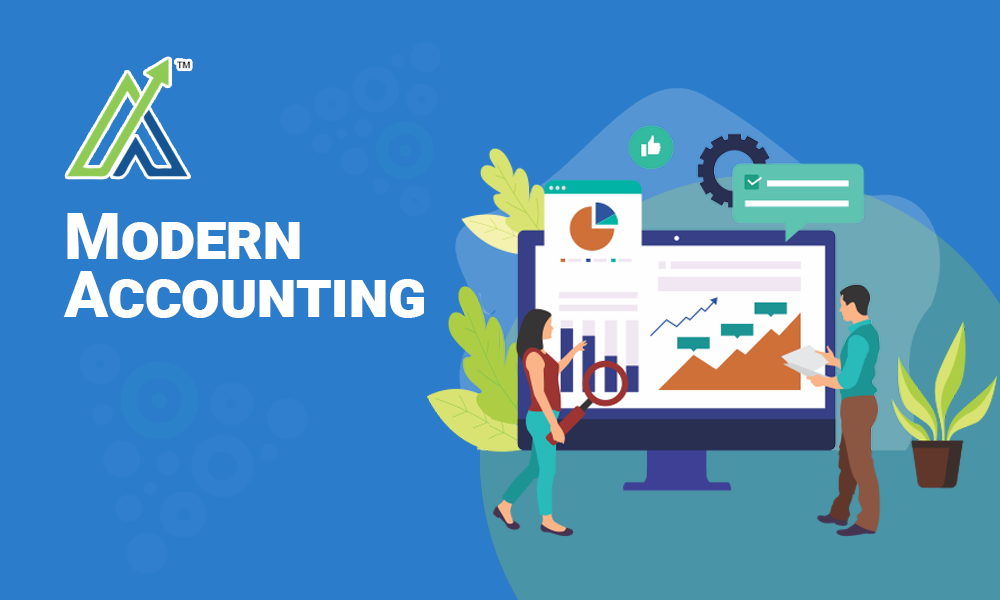Introduction
In the ever-evolving realm of contemporary accounting, the incorporation of Artificial Intelligence (AI) emerges as a transformative catalyst, reshaping conventional norms and ushering in a new era of efficiency and ingenuity. The pivotal role played by AI in modern accounting extends beyond routine processes, presenting revolutionary solutions that automate, analyze, and elevate financial operations. From streamlined data entry to advanced analytics, fraud detection, and predictive modeling, AI is fundamentally altering the landscape of financial management. The artificial intelligence not only enhances but fundamentally redefines the accounting profession. It empowers professionals to make informed decisions, mitigate risks, and navigate the intricacies of the digital financial landscape, marking a significant paradigm shift in the field.
The role of Artificial Intelligence in modern accounting is transformative, revolutionizing traditional processes and offering unprecedented efficiency and insights. Here are key aspects highlighting the impact of AI on modern accounting:
Automation of Repetitive Tasks:
Artificial Intelligence (AI) serves to automate repetitive and mundane tasks like data entry, allowing accountants to redirect their efforts toward more strategic and value-added activities within the financial management process.
Advanced Data Analytics:
The advanced analytics capabilities of AI enable accountants to swiftly interpret vast datasets, facilitating deeper financial analysis. This empowers professionals to uncover intricate trends, patterns, and insights that might be challenging to identify through manual methods.
Fraud Detection and Risk Management:
AI algorithms play a crucial role in fraud detection by identifying anomalies or irregular patterns in financial transactions. This not only aids in early fraud detection but also contributes to robust risk management by pinpointing potential areas of concern.
Predictive Analytics:
Through predictive analytics, AI empowers businesses to forecast future financial trends. This forward-looking approach assists in proactive decision-making, allowing organizations to anticipate and respond effectively to financial challenges and opportunities.
Customer Service Enhancement:
AI-driven chatbots enhance customer service by providing real-time support, addressing queries, and assisting with problem-solving. This ensures immediate and efficient responses, improving the overall customer service experience.
Expense and Invoice Management:
AI-powered tools streamline expense tracking and invoice management processes, automating functions to improve accuracy, reduce processing times, and ensure compliance with financial policies and regulations.
Workflow Automation:
AI optimizes workflow processes by automating routine tasks like invoice approval and financial reporting. This not only increases operational efficiency but also reduces the likelihood of errors in day-to-day accounting operations.
Strategic Decision Support:
AI provides accountants with advanced tools for analysis and prediction, facilitating more informed and strategic decision-making. Leveraging AI insights enables organizations to make data-driven decisions aligned with their financial objectives.
Efficiency Improvement:
By handling routine and time-consuming tasks, AI enhances overall efficiency within accounting processes. Accountants can dedicate their expertise to areas that require critical thinking and strategic planning, thereby maximizing their value within the organization.
Adaptability and Continuous Learning:
AI systems continuously learn from historical data, adapting to changing accounting practices and evolving regulatory requirements. This adaptability ensures that AI technologies remain relevant and effective over time, aligning seamlessly with the dynamic nature of the accounting landscape.
Conclusion
In summary, the infusion of Artificial Intelligence (AI) into modern accounting marks a pivotal shift in financial management. AI’s diverse contributions, from automating tasks to enhancing analytics and fraud detection, underscore its ability to boost efficiency and strategic insight. As businesses increasingly leverage predictive analytics and AI-driven support, professionals gain the tools to make informed decisions and proactively address financial challenges. The streamlined workflows and customer service improvements contribute to overall operational efficiency, allowing accountants to focus on high-impact activities. Moreover, the adaptability and continuous learning of AI systems ensure their resilience amid evolving accounting practices and regulations. The integration of AI in modern accounting not only enhances professional capabilities but also signals a transformative move toward dynamic, efficient, and strategically-driven financial management in the digital era.

